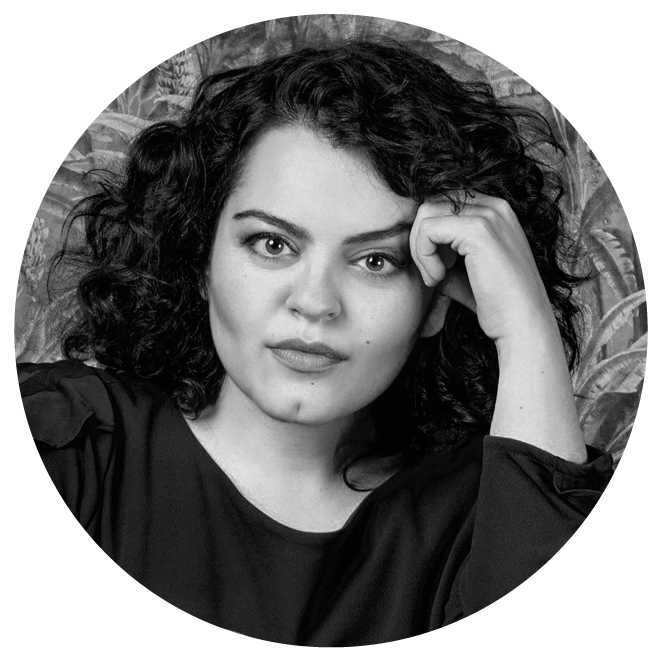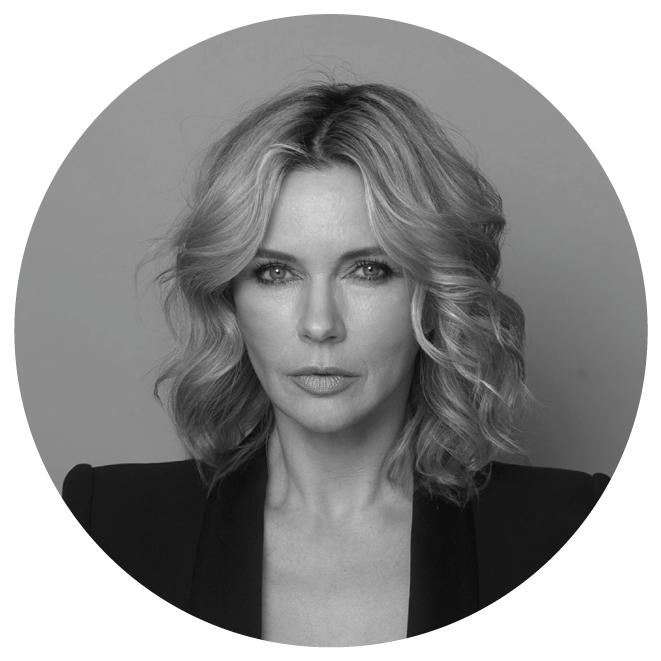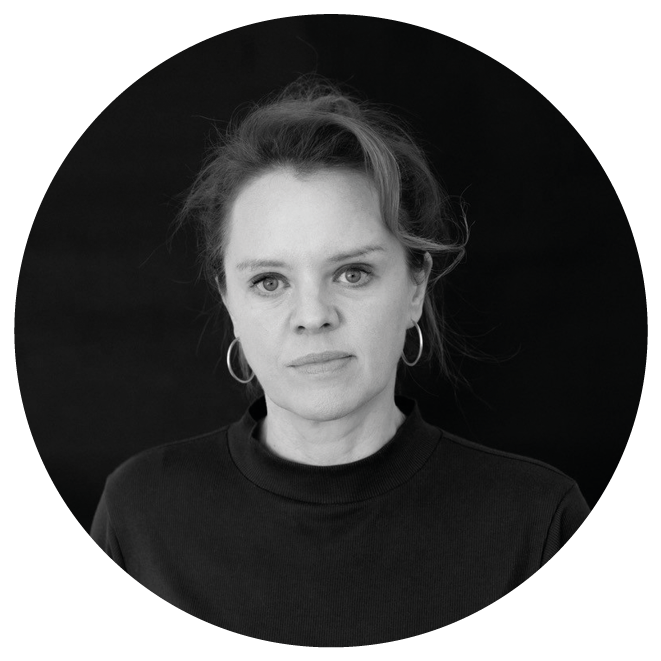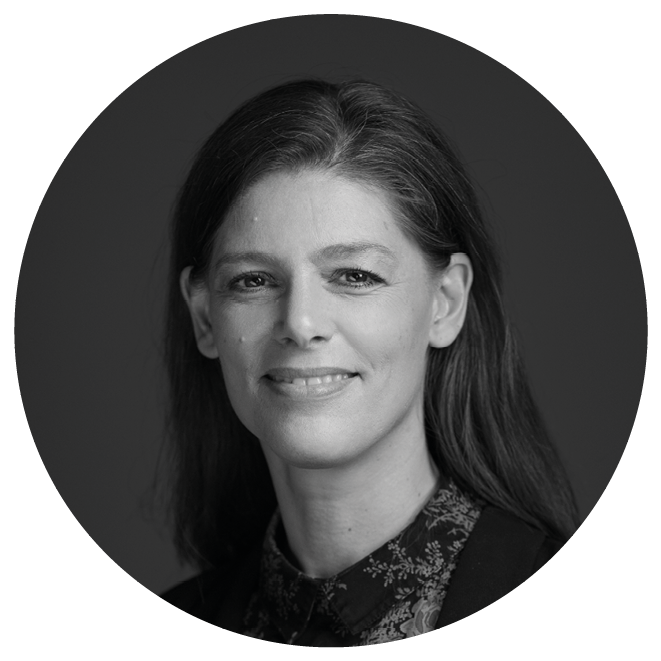70 YEARS ANNIVERSARY GERMAN FILMS
Filmmakers and companions on 70 years of German Films
German Films is celebrating 70 years of German cinema! Founded in 1954, German Films has been successfully supporting, promoting and accompanying German feature films and German filmmakers for the past seven decades as they present their works abroad.
At German Films we have been celebrating this anniversary throughout the year with various activities: for this issue of the GFQ magazine, we wanted to give filmmakers and companions of German Films a chance to have their say. We asked them a few questions about what German cinema means to them and what kind of special memories they have.
Emily Atef

Emily Atef © Alamachere
70 years of German cinema on an international level – which German film from these seven decades springs to mind that has impressed you personally or stayed with you – and why?
1. FEAR EATS THE SOUL by Rainer Werner Fassbinder
2. FATE by Fred Kelemen
3. STEFAN ZWEIG – FAREWELL TO EUROPE by Maria Schrader
4. HOME FROM HOME – Chronicle of a Vision by Edgar Reitz
5. THE ROBBER by Benjamin Heisenberg
6. WINGS OF DESIRE by Wim Wenders
7. LONGING by Valeska Grisebach
8. HEAD-ON by Fatih Akin
9. REQUIEM by Hans-Christian Schmid
How would you characterise German cinema – either individually or with 3 characteristics?
This is a very general question because there are many different filmmakers and film worlds in Germany but, in general, I would say that German cinema is characterised by a profundity in the stories depicting the physiological human universe, dramas having a subtle poetic quality, but also by a coldness in the observation of interpersonal relationships .
Is there a particular memory, encounter, experience, event or anecdote that you associate with German Films (or its predecessor Export Union)?
On a personal note, I remember my first German Films party in Cannes. It was in 2008 where our film THE STRANGER IN ME screened in the ‘Semaine de la Critique’ section. My first time at the Festival de Cannes. A festival of filmmakers, a festival where cinema is truly celebrated as art. And when you‘ve just come out of film school (DFFB) and your German feature film is being celebrated in Cannes, and you‘re walking up the hills with your team, the cicadas are chirping, the rosé you‘ve already drunk is going straight to your head, and then you finally arrive at the villa of the German Films party to see familiar faces, continue just talking about cinema – that is and was really magical. Especially the first time.
Looking to the future: what do you wish for German cinema?
I would like to see more black humour in German cinema. I wish that there was more nonchalance and pleasure in showing a diversity in the stories appearing on the big screen. I hope that German Films continues its efforts in ensuring that the big screen is still the place where people experience feature films! And that, thanks to German Films, cinema and art are given greater weight by the policy-makers.
Sara Fazilat

Sara Fazilat © Marcus Höhn
70 years of German cinema on an international level – which German film from these seven decades springs to mind that has impressed you personally or stayed with you – and why?
THE LIVES OF OTHERS, WHEN WE LEAVE, HEAD-ON, A REGULAR WOMAN – these films triggered a lot in me when I was watching them and they stayed with me for a long time, the storytelling is very authentic. There is at least one moment in each of these films that I find very honest and genuine. These are also the moments that I’m always looking for and trying to portray when writing and making my own films.
How would you characterise German cinema – either individually or with 3 characteristics?
A bit cool to begin with, sometimes sceptical, a smile gradually appears, and things then get really warm and honest if people open up their hearts to one another.
Which German filmmakers have impressed or perhaps even influenced you or whom you consider significant for German cinema?
Of course, I can‘t not name Fassbinder and his collective, who made great films. A remarkable feature here is the path they followed, always believing in themselves and carrying on no matter what others say, and that’s something I‘m increasingly seeing happening now in German cinema. That’s impressive and significant for all of us and for German cinema.
Is there a particular memory, encounter, experience, event or anecdote that you associate with German Films (or its predecessor Export Union)?
There are quite a few, the Face to Face campaign, of course, has a place forever in my heart. But there was already a connection very early in my career when I had just started my studies at the DFFB. We were able to celebrate the premiere of our film “Not Too Early, Not Too Late’ in Cannes. We all wondered whether we would ever get the chance to be in Cannes with other films. Years later I was there with ‘Holy Spider’. In fact, that was one of the first thoughts I had when I was there then with German Films.
It was, so to speak, my first moment in Cannes that I was able to experience with and thanks to German Films.
Looking to the future: what do you wish for German cinema?
That we can all carry on telling stories and making films for a long time to come, and with a focus on different narrative styles.
To be able to take risks and surprise with them and have the courage to fail because you can find a lot of strength and growth in that.
Veronica Ferres

Veronica Ferres © Manfred Baumann
70 years of German cinema on an international level – which German film from these seven decades springs to mind that has impressed you personally or stayed with you – and why?
The magnificent success of SCHTONK, directed by Helmut Dietl, is naturally unforgettable for me and will stay in my memory forever. The Oscar nomination and Golden Globe nomination didn‘t just change my life at the time. It was an incredible experience to see the kind of response this film received around the globe. It also won an award at the Tokyo Film Festival, to name just one of the prizes.
And then I was, of course, more than fascinated by SYSTEM CRASHER by Nora Fingscheidt, which also resulted in a wonderful collaboration with her because I was able to attach her as director to my feature film THE UNFORGIVABLE with Sandra Bullock and Viola Davis.
And, most recently, there was ALL QUIET ON THE WESTERN FRONT, what a masterpiece by Edward Berger. What a highly topical, historical film with particular significance for today’s world.
How would you characterise German cinema – either individually or with 3 characteristics?
I would characterise German cinema as having strong stories, strong visions.
Which German filmmakers have impressed or perhaps even influenced you or whom you consider significant for German cinema?
The new German filmmakers naturally had an incredible influence on me when I came to Munich as a young student to study Theatre Studies, German Studies and Psychology at the LMU Munich before then relatively quickly taking up an internship at Werner Herzog’s company. Werner Herzog, Alexander Kluge, Margarethe von Trotta, Rainer Werner Fassbinder with his incomparably wonderful films. Doris Dörrie really fascinated me, and the same goes for Nora Fingscheidt and Emily Atef.
Is there a particular memory, encounter, experience, event or anecdote that you associate with German Films (or its predecessor Export Union)?
Of course, I deeply treasure the weeks and months of the Oscar nomination for SCHTONK, but it was also very emotional for me this year to see Ílker Çatak‘s amazing success with the nomination for his fantastic film THE TEACHERS’ LOUNGE.
Looking to the future: what do you wish for German cinema?
To continue telling local stories from the inside that are of the highest standard and have great global appeal.
Julia von Heinz

Julia von Heinz © Peter Hartwig
70 years of German cinema on an international level – which German film from these seven decades springs to mind that has impressed you personally or stayed with you – and why?
THE GERMAN SISTERS by Margarethe von Trotta from 1981. This film about two contrasting sisters whose relationship breaks down over the issue of political violence is still so relevant today. It is characterised by intelligence, accuracy and warmth. Margarethe was the first woman to win the Golden Lion in Venice and the film is so modern that it should be shown everywhere again in this day and age. It inspired me to make my film AND TOMORROW THE ENTIRE WORLD.
Which German filmmakers have impressed or perhaps even influenced you or whom you consider significant for German cinema?
I am over the moon that we have Margarethe von Trotta, Doris Dörrie, Caroline Link, Maren Ade, Nora Fingscheidt and Maria Schrader. I feel a strong connection to my female colleagues who have all become visible on an international level and write and direct personal feature films of outstanding quality.
Is there a particular memory, encounter, experience, event or anecdote that you associate with German Films (or its predecessor Export Union)?
Thanks to German Films, I was able to travel the world with my films and make valuable contacts that led to further film projects. I‘ll never forget my trip to the Haifa Film Festival with Mariette Rissenbeek with the film HANNA‘S JOURNEY, Moscow with I’M OFF THEN or Shanghai with my debut NOTHING ELSE MATTERS.
The trip to New York with Hanna‘s Journey resulted in Lily Brett giving me the rights to her novel which became my latest film TREASURE. My career path would have been different without German Films.
Looking to the future: what do you wish for German cinema?
I would wish that German cinema has even more warmth, more humour, more poetry and more production values. That‘s something I tell myself so that I never forget it.
Christoph Hochhäusler

Christoph Hochhäusler © Andi Weilan / -berlinergazette
70 years of German cinema on an international level – which German film from these seven decades springs to mind that has impressed you personally or stayed with you – and why?
How about LOLA MONTEZ by Max Ophüls (D/F 1955)? Almost as old as German Films, with a Munich connection and, above all, is still trendsetting in visual and narrative terms.
How would you characterise German cinema – either individually or with 3 characteristics?
Contemporary German cinema is good at finding the middle ground. A bit of art, a bit of commerce, not hurting anyone. The result is rarely satisfying. Too many films are not fully developed or are produced halfheartedly. There is no lack of talent and ideas, but there is a lack of intelligence when it comes to ‘realising opportunities’. That’s something we need to change.
Which German filmmakers have impressed or perhaps even influenced you or whom you consider significant for German cinema?
Ernst Lubitsch, Max Ophüls and Fritz Lang are eternal favourites of mine. But the list of German filmmakers who are important to me is, of course, much longer. These include (in the order they were born) F.W. Murnau, Lotte Reiniger, Helmut Käutner, Konrad Wolf, Alexander Kluge, Frank Beyer, Roland Klick, R.W. Fassbinder, Dominik Graf, Thomas Heise, Christian Petzold, Thomas Arslan, Angela Schanelec, Romuald Karmakar, Valeska Grisebach, Jan Bonny and many more.
Looking to the future: what do you wish for German cinema?
German cinema will only survive if it is risky, exciting and bold. And, at the same time – only seemingly in contradiction to this – if it is prepared to learn, build on successes, and establish traditions.
Dan Maag

Dan Maag © Lars Nitsch
70 years of German cinema on an international level – which German film from these seven decades springs to mind that has impressed you personally or stayed with you – and why?
THE BRIDGE by Bernhard Wicki from 1959. A film that made a lasting impression and deeply moved me.
How would you characterise German cinema – either individually or with 3 characteristics?
Much better than its reputation and often not adequately appreciated – and sadly that’s also the case on a national level.
Which German filmmakers have impressed or perhaps even influenced you or whom you consider significant for German cinema?
Bernd Eichinger, of course. Second to none in his clarity and vision as a producer.
Is there a particular memory, encounter, experience, event or anecdote that you associate with German Films (or its predecessor Export Union)?
Of course, I remember many exciting receptions with very interesting meetings.
Looking to the future: what do you wish for German cinema?
More support being made available in one’s own country. Having the courage to be radical. Having the courage for commercial experiments. Less fear in the system. A reliable funding infrastructure that trusts the filmmakers. Not being ashamed of one’s own identity. A yen for great entertainment.
Silvana Santamaria

Silvana Santamaria © Sven Serkis
70 years of German cinema on an international level – which German film from these seven decades springs to mind that has impressed you personally or stayed with you – and why?
FEAR EATS THE SOUL by Rainer Werner Fassbinder. The film is now exactly 50 years old. The subject matter is still relevant. A portrait of society and an unusual love story. Fassbinder succeeded in empathising with the perspective of a migrant worker and an older German woman and portraying their struggle in a credible and compassionate way. It‘s almost unique in German film history.
How would you characterise German cinema – either individually or with 3 characteristics?
Unconventional, smart, diverse.
Which German filmmakers have impressed or perhaps even influenced you or whom you consider significant for German cinema?
Helma Sanders-Brahms, Fatih Akin, Maren Ade, Rainer Werner Fassbinder, Nicolette Krebitz.
Is there a particular memory, encounter, experience, event or anecdote that you associate with German Films (or its predecessor Export Union)?
An anecdote doesn’t come to mind. But sometimes you just have to praise the German Films team and say that they do a really great job. With tens of thousands of people working in our industry, it‘s not always easy to do justice to every artist alongside the many obligations, and yet they are relentless in having a go.
Looking to the future: what do you wish for German cinema?
More diversity in terms of more individuals with diverse cultural backgrounds, physical or mental impairments and different gender and sexual identities.
Clemens Schick

Clemens Schick © Hannes Gade
70 years of German cinema on an international level – which German film from these seven decades springs to mind that has impressed you personally or stayed with you – and why?
VERONIKA VOSS by Fassbinder because of the raw and direct performances given by the magnificent actors and Fassbinder‘s vulnerable way of directing.
How would you characterise German cinema – either individually or with 3 characteristics?
Searching. Uncomical. Precise.
Which German filmmakers have impressed or perhaps even influenced you or whom you consider significant for German cinema?
Rainer Werner Fassbinder and Werner Herzog.
Is there a particular memory, encounter, experience, event or anecdote that you associate with German Films (or its predecessor Export Union)?
When we were in Moscow with 4 KINGS, we passed the time waiting for the food after the screening by drinking vodka while the restaurant’s ceiling was shaking dangerously because there was a disco above it. I wasn‘t sure whether we would end up as an article in a newspaper. But all we then got was a severe hangover.
Looking to the future: what do you wish for German cinema?
Willingness to take risks.
